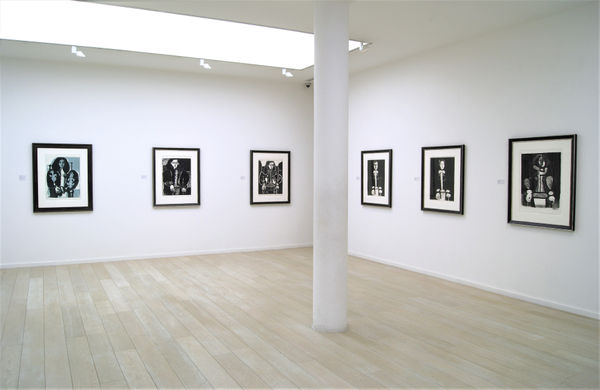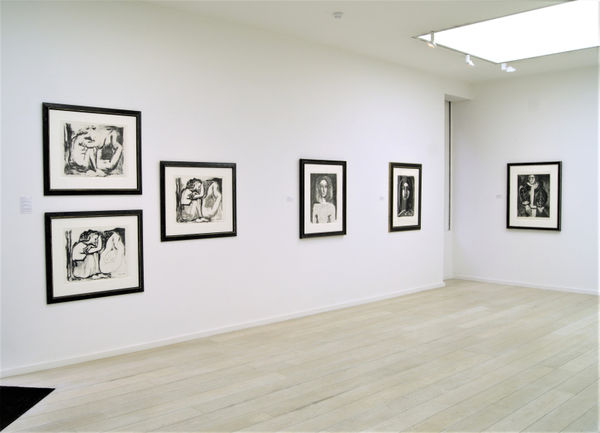Pablo Picasso
Alan Cristea Gallery presents an exhibition of rare portrait lithographs by Pablo Picasso, from 24 March until 21 April 2011. Lithography, a method for printing using a stone or metal plate, was a medium which fascinated Picasso; this exhibition charts the decade from 1945 which saw his most prolific period of activity in the medium through a tightly edited group of just 16 works representing some of the best and rarest examples. The majority of these works, many depicting his mistresses, were only produced as copies of successive stages of a stone or plate and as such never intended for public display and distribution; consequently these artists proofs are highly sought after by collectors around the world.
During the 20th century, a group of celebrated artists including Chagall, Matisse, Miro and Picasso rediscovered the largely unexplored art form of lithography, thanks to the Mourlot Studios, a Parisian print-shop founded in 1852 by the Mourlot Family, which was transformed when the founder's grandson, Fernand, invited a number of leading artists of the day to explore the complexities of fine art printing. During the war Picasso had been starved of the associations so necessary to him with fellow artists, poets and craftsmen and one can speculate that the opportunity of renewing a daily relationship with a master printer was of great personal and professional appeal to him.
Picasso made numerous single images during these years but, in most cases, he would develop and transform a theme through many stages of a stone or plate. This exhibition focuses on his lithographic portraits of women, including his muses Francoise Gilot and Marie-Thérèse Walter, in which this transformative process is particularly prevalent. The exhibition consists of both "reserved" proofs (showing successive stages of prints which Picasso preserved as a record) and several final, editioned signed and numbered prints.
Highlights include Femme Assise et Dormeuse, dating from 1947, one of his earliest examples of lithography from the larger zinc plates, in which his abstracted, neo-classical female figures (seen frequently in earlier paintings, drawings or prints of women on a beach) fill the sheet - completely, in a tender and tranquil scene of repose. Several trial stages of Femme Assise et Dormeuse, as well as a final image, a literal combination of the two proceeding ones will be shown. There are a number of proofs featuring Francoise Gilot; Femme au Fauteuil No.1 (2nd State), 1948, a lithograph with scrapings of glass paper and needle, crayon and ink, is one of six proofs reserved for the artist and printer. Femme au Fauteuil No. 1 (9th State), produced some 15 days later than the 2nd state on 28 December 1948, is printed in black and blue-grey on Arches wove paper, and is one of six proofs, printed in different colours, reserved for the artist and printer. The exhibition will also include unique proofs; Femme au corsage à Fleurs, 1958, is a 3rd and final state unique proof on grey wove paper.

